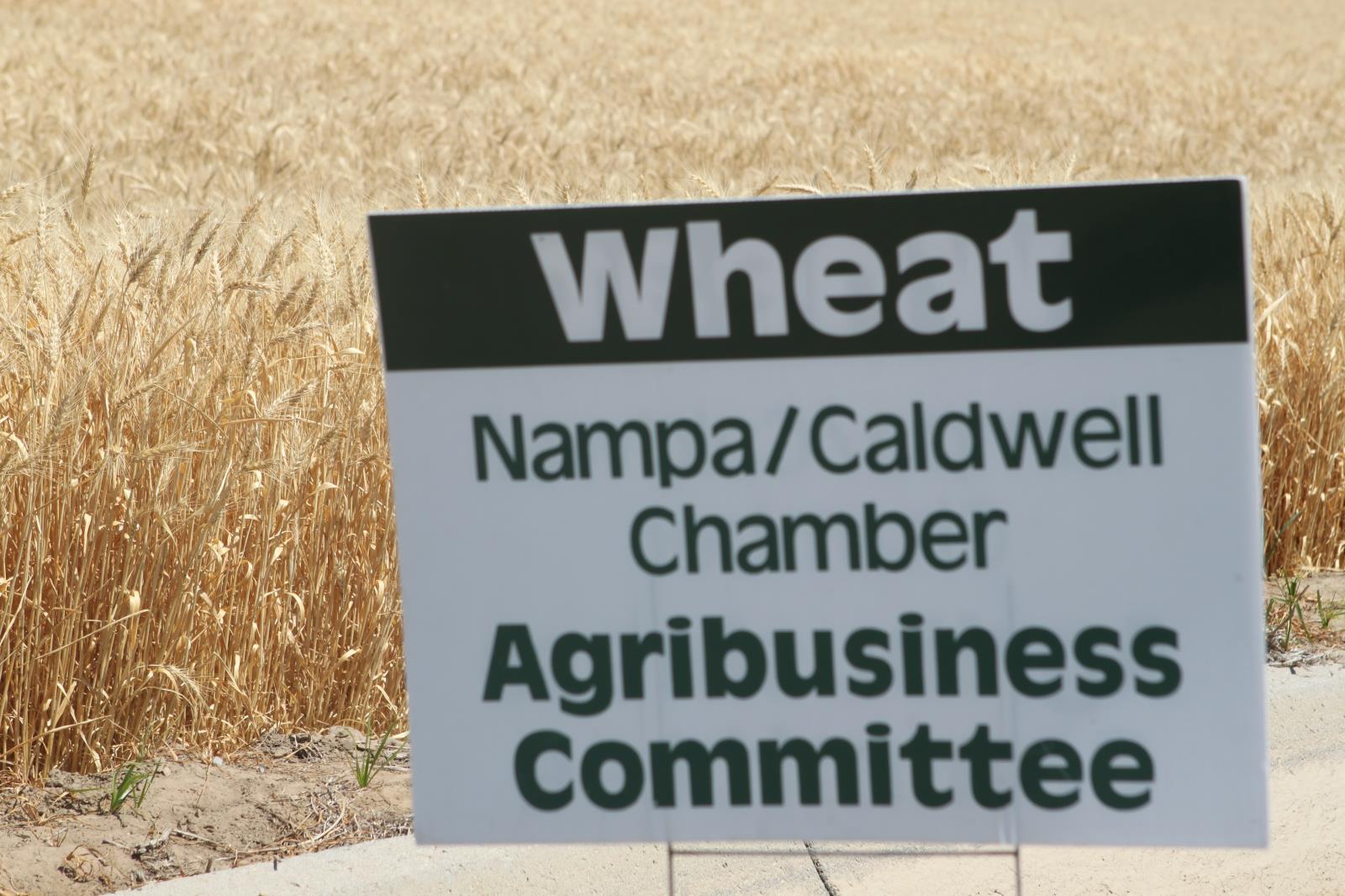Most PNW wheat not eligible for farm relief payments

By Sean Ellis
Idaho Farm Bureau Federation
POCATELLO – Most of the wheat grown in Idaho, Oregon and Washington is not eligible for USDA’s coronavirus farm relief payments.
The Coronavirus Food Assistance Program will provide $16 billion in direct support payments based on actual losses for farmers and ranchers who have been negatively impacted financially by the COVID-19 outbreak.
While a plethora of farm commodities are eligible for the payments, hard and soft white wheat and hard and soft red winter wheat did not meet USDA’s price loss requirements to be eligible for the CFAP payments.
Those classes of wheat account for the majority of wheat grown in the Pacific Northwest states of Idaho, Oregon and Washington, according to a press release issued jointly by the Idaho Grain Producers Association, Oregon Wheat Growers League and Washington Association of Wheat Growers.
Durum wheat, hard red spring wheat and malting barley are eligible for the payments and the PNW wheat associations welcomed that news. But the groups’ leaders expressed significant reservations because most of the wheat produced in the region is excluded from program eligibility.
“We appreciate USDA providing some much-needed relief to farmers, but they missed the mark by not allowing all classes of wheat to be eligible for relief,” IGPA President Jamie Kress stated in the news release.
The CFAP funding is intended to support producers who have suffered a price decline of 5 percent or more or who had losses due to COVID-19 market supply chain disruptions and face additional significant market costs.
According to the press release, wheat farmers fall within the parameters for loss but the methodology used by USDA to calculate the price loss neglects to incorporate price drops between January and April, when wheat farmers were marketing their crop. It also doesn’t account for local cash prices that farmers were receiving, which were less than futures prices in many areas of the country.
“We are disappointed that USDA failed to acknowledge market declines felt by producers in the PNW this spring,” Kress said. “The four excluded classes of wheat have all seen significant price declines and warrant inclusion in the program.”
As an example, Kress said, local cash prices for white wheat in southeast Idaho have dropped significantly since mid-January.
WAWG President Ryan Poe said all classes of wheat experienced price drops during the first quarter of 2020, which is a critical marketing time for wheat producers.
“So, while cash prices were less than futures prices during the designated timeframe, many wheat growers were greatly impacted but do not qualify for CFAP,” Poe said.
He said producers of all classes of wheat should be eligible for assistance under CFAP.
“Like many other commodities, wheat growers have been battling low prices all year and COVID-19 has introduced another level of instability into our markets,” Poe said.
When Idaho, Oregon and Washington are combined, wheat is the top crop by total acreage in the PNW. According to USDA’s National Agricultural Statistics Service, farmers in those states harvested a combined 4.07 million acres of wheat in 2018, well ahead of the No. 2 crop by acreage, hay (3.2 million acres).
About 3,000 farmers in Idaho grow wheat and that crop brings in about $500 million in farm-gate receipts – that’s the amount of revenue farmers receive for their crop – each year.
According to a USDA press release on the details of the CFAP program, the agency will consider additional crops to be eligible for the payments by collecting further information.
“All three states’ wheat associations encourage this reevaluation,” the wheat industry press release states. “All three states will be working with the National Association of Wheat Growers to provide information to USDA about the need to make all wheat classes eligible for CFAP.”
Still can't find what you are looking for? Find by topic:
- Achievement Award (YF&R)
- Actions Alerts
- Advocacy
- Ag Ambassadors
- American Farm Bureau
- American Farm Bureau Policy Book
- Archive Photos
- Articles
- Board of Directors
- Calendar - State/District
- Calendar - County
- Capitol Reflections
- Collegiate Chapters
- Committee Application Form
- Commodities
- Convention Annual
- County Presidents & Board Information
- County Resource Page
- Delegate Form
- Discount Programs
- Discussion Meet
- Discussion Meet - High School
- Education Programs
- Events
- Excellence Award (YF&R)
- Expense Voucher
- Flickr
- Gem State Producer
- High School Discussion Meet
- High School Speech Contest
- Hope in Idaho Ag
- House of Delegates Credentials Form
- IFBF Board of Directors
- IFBF Policy Book
- IFBF Staff
- Insurance
- Legislative Action Program
- Legislative Issues
- Library
- MAC Trailer
- Magazines
- Map My Benefits
- Member Benefits
- Member Discount
- Membership Application
- Mission Statement
- Moving Agriculture to the Classroom
- Newsletter Sign up
- News Releases
- News Room
- Open Range Law
